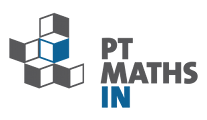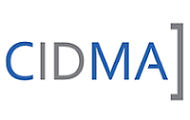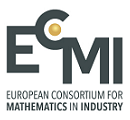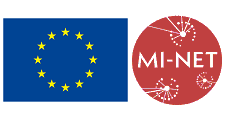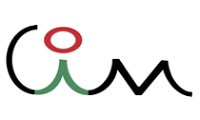University of Aveiro 8-12 May, 2017 Venue to be announced |
Welcome to the 127th European Study Group with Industry The 127th European Study Group with Industry will take place from May 8th to May 12th 2017 in Portugal, at the University of Aveiro. These meetings were created with the aim of renovating and reinforcing the links between Mathematics and Industry. This meeting is part of the series of European Study Groups and will bring together several European experts with a large experience in this type of events. More information on study groups and related aspects is available at the International Study Groups website, the Smith Institute and the European Consortium for Mathematics in Industry. |
Information for Companies
If you think that your company might have something to gain from discussing a problem with us, do not hesitate to contact the 127th ESGI organizers.
We will be more than happy to visit you, at no cost and without any need for an immediate commitment, for an initial discussion about formulating such a problem. The confidentiality of the data provided is assured.
Almost all industrial problems have some mathematical aspect to them, although the mathematics is not always recognizable at first. Indeed, from our own experience, some of the most successful
study group problems were not well-defined in mathematical terminology at the start of the study group. Study group problems can come from a wide range of industrial areas, such as
Engineering, Electronics, Transport, Agriculture, Energy, Banking, Medicine. For more information on past study groups, including a description of some of the problems which have been presented at previous meetings,
see Past Study Groups.
The fee for a firm to present a problem at the study group will depend on the size of the enterprise.
Companies may be present only on the first day (to expose their problems) and on the last day (for the results), but they may also stay the entire week to brainstorm ideas.
After the event, a report on each problem will be sent to the company. Optionally, one of the academics may visit the company to discuss the solution.
Information for Academics
The academic participants are a diverse group of people, including PhD students, postdoctoral fellows, and professors,
with expertise in Mathematical fields such as Operations Research, Optimization, Statistics,
Numerical Analysis, Computer Sciences, Physics, Finances, Data Analysis, among others.
At the beginning of the week, a representative from each company presents their industrial problem to the participating
mathematicians. The participants allocate themselves to a group, each of which works in one of the proposed problems with
the industrial partner. The work will be developed in full-time over the next days. On the last day, each group will make
a presentation of the results obtained and all participants share suggestions for further work.
After the study group, a report on each problem will be sent to the corresponding firm. Apart from the results obtained
during the study group, this report may contain suggestions for further collaboration.
Proceedings with the technical reports produced by the participating groups will be published. Additionally a booklet
containing the summaries of the results and success stories of the collaborations will be sent to potential future partners,
companies and funding institutions.
We are able to support the expenses of a reduced number of participants. If you want to apply for this support, please contact
the organizing committee, sending a motivation letter and a short CV.
Sponsors
This initiative was supported by COST Action TD1409, Mathematics for Industry Network (MI-NET).
COST is supported by the EU Framework Programme Horizon 2020.
COST is supported by the EU Framework Programme Horizon 2020.
| BACK TO TOP > |



